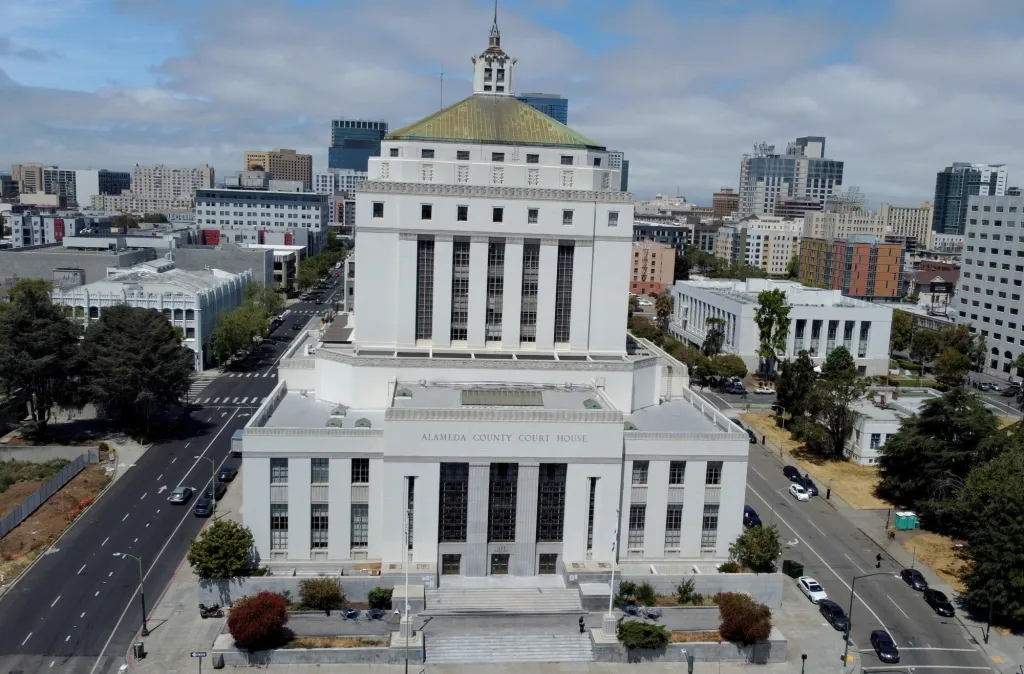Alameda County Superior Court: Navigating the Judicial System
SEO Meta-Description: Learn everything you need to know about Alameda County Superior Court, its functions, processes, and how to navigate the judicial system effectively. Explore essential insights and FAQs for a comprehensive understanding.
Introduction: Understanding Alameda County Superior Court
Welcome to a comprehensive guide on Alameda County Superior Court, one of California’s prominent judicial bodies. If you find yourself involved in a legal matter within Alameda County, this article will be your go-to resource for understanding the court’s functions, processes, and how to approach it effectively. Whether you are a plaintiff, defendant, witness, or just seeking information, our expert insights and firsthand knowledge will equip you with valuable information.

Alameda County Superior Court: An Overview
The Alameda County Superior Court serves as the primary trial court for Alameda County residents. Its jurisdiction covers various civil and criminal cases, family law matters, probate issues, juvenile cases, and more. This court system plays a crucial role in ensuring justice is served and resolving disputes for the county’s diverse population.
Filing Procedures at Alameda County Superior Court
When initiating a legal action, understanding the filing procedures is vital. Here’s a step-by-step guide to help you navigate through the process smoothly:
- Identifying the Proper Court: Before filing a case, ensure you identify the appropriate court based on the nature of your legal matter. Alameda County Superior Court has different divisions for specific case types.
- Preparing the Necessary Documents: Gather all relevant documents, including forms, evidence, and supporting materials. Ensure everything is properly filled out and organized to avoid delays in processing.
- Filing the Case: Once you have your documents ready, file your case with the appropriate division at the Alameda County Superior Court. Pay the required fees and obtain a case number.
- Service of Process: If you are the plaintiff, ensure that the defendant is properly served with the court documents, informing them about the lawsuit.
- Case Management: The court will schedule various hearings and conferences to manage the case’s progress, ensuring it moves forward in a timely manner.
- Mediation and Settlement: In some cases, the court may recommend or mandate mediation to encourage parties to reach a settlement outside of trial.
Navigating Civil Litigation in Alameda County
Civil litigation involves disputes between individuals or entities seeking legal remedies. Understanding the process is crucial for anyone involved in a civil case. Here’s what you need to know:
- Pleadings and Complaints: The plaintiff initiates the case by filing a complaint, and the defendant responds with an answer. These documents set the foundation for the legal arguments.
- Discovery Phase: Both parties exchange relevant information and evidence through methods like interrogatories, depositions, and document requests.
- Pre-Trial Motions: Parties may file pre-trial motions to resolve issues before trial, such as motions to dismiss or motions for summary judgment.
- Trial: If the case proceeds to trial, both sides present their evidence, and the judge or jury makes a decision based on the presented facts and law.
- Appeals: Parties dissatisfied with the trial outcome may file an appeal with the appropriate appellate court.
Criminal Justice System in Alameda County
The criminal justice system in Alameda County plays a significant role in ensuring public safety and fair trials for defendants. Let’s explore the key elements:
- Arrest and Booking: When law enforcement believes a crime has been committed, they arrest the suspect and book them into custody.
- Arraignment: The defendant appears in court, is informed of the charges, and enters a plea.
- Bail and Release: Depending on the severity of the crime and the defendant’s background, bail may be set, allowing the defendant to be released from custody pending trial.
- Plea Bargaining: In some cases, the prosecution and defense may negotiate a plea bargain to resolve the case without going to trial.
- Trial and Sentencing: If the case proceeds to trial, the defendant is presumed innocent until proven guilty, and the prosecution must prove guilt beyond a reasonable doubt.
- Appeals and Post-Conviction Relief: Defendants have the right to appeal their convictions and may seek post-conviction relief under certain circumstances.
Family Law Matters in Alameda County Superior Court
Alameda County Superior Court handles a variety of family law cases. Whether you’re dealing with divorce, child custody, or adoption, understanding the court’s approach is essential:
- Divorce and Dissolution: When a marriage ends, couples may file for divorce or legal separation, addressing property division, spousal support, and child custody.
- Child Custody and Visitation: The court prioritizes the best interests of the child when determining custody and visitation arrangements.
- Child Support: The non-custodial parent may be required to provide financial support to ensure the child’s well-being.
- Adoption: Prospective parents seeking to adopt must follow a thorough legal process, ensuring the child’s safety and well-being.
Probate Proceedings: Settling Estates
Probate proceedings in Alameda County Superior Court handle the distribution of assets and debts after a person’s passing:
- Initiating Probate: The executor or personal representative of the deceased’s estate initiates the probate process by filing the necessary documents with the court.
- Identifying Assets and Debts: The court ensures that all assets and debts are identified and properly accounted for.
- Distribution of Assets: Once debts are settled, the remaining assets are distributed to the beneficiaries according to the will or state law.
- Challenges to the Will: Interested parties may contest the validity of the will if they believe it was executed under undue influence or when the deceased lacked the mental capacity.
Juvenile Cases: Fostering Rehabilitation
Juvenile cases are unique as they focus on rehabilitation rather than punishment:
- Juvenile Delinquency: The court addresses cases involving minors accused of committing crimes, with an emphasis on rehabilitation.
- Dependency Proceedings: In cases of neglect or abuse, the court may intervene to ensure the child’s safety and well-being.
Traffic Citations and Infractions
Alameda County Superior Court also handles traffic citations and infractions:
- Traffic Tickets: If you receive a traffic ticket, you can respond by paying the fine or contesting the ticket in court.
- Traffic School: In some cases, attending traffic school may be an option to prevent points from being added to your driving record.
Alternative Dispute Resolution
Alameda County Superior Court encourages alternative dispute resolution methods:
- Mediation: Parties involved in a dispute can work with a neutral mediator to reach an agreement outside of court.
- Arbitration: In arbitration, a neutral third party reviews the case’s evidence and makes a binding decision.
Frequently Asked Questions (FAQs)
- Can I represent myself in court?
- Yes, you have the right to represent yourself in court, but legal proceedings can be complex. Consider consulting an attorney for guidance.
- How do I pay court fees?
- Court fees can typically be paid in-person at the courthouse or through an online payment portal.
- How long does the probate process take?
- The probate process duration varies depending on the estate’s complexity, but it usually takes several months to a year.
- Can I request a traffic court extension?
- Yes, in some cases, you may request an extension for a traffic court appearance.
- Can I appeal a family court decision?
- Yes, you can appeal a family court decision if you believe it was made in error or based on improper legal reasoning.
- What happens during a juvenile delinquency hearing?
- During a juvenile delinquency hearing, the court determines whether the minor committed the alleged offense and may recommend rehabilitation programs.
Conclusion: Navigating the Alameda County Superior Court
Understanding the Alameda County Superior Court’s processes and procedures is essential when dealing with legal matters in the county. By familiarizing yourself with the outlined information, you can approach the court system with confidence and make well-informed decisions. Remember, legal issues can be complex, so seeking professional advice or representation is advisable when necessary.







